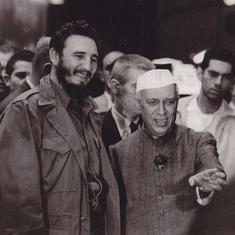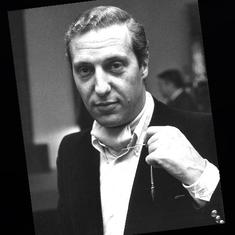Rahul had been tender-hearted as an adolescent. He would offer to share his tiffin with his classmates when his mother packed cheese sandwiches instead of the usual rajma-chawal. He would cry easily when a meaner kid called him a name and he would say yes to his teacher’s orders even if he didn’t know what they meant. “What would you say is your earliest memory of feeling deeply ashamed of your body, Rahul?” I asked the gentle, nervous man who sat by me. Rahul was now thirty-three.
“In biology class … I think,” he replied before going on to narrate what felt like an experience no young adult should ever go through. This is an experience that perhaps many of us may have even encountered in our own schools when we were in the sixth or seventh grade, one that may not even have registered as anything other than slightly funny. However, like in so many such events, the person who was impacted by it may remember it quite differently.
One hot summer’s day at a busy school in New Delhi, Ms Sheela, the school’s Biology teacher, was teaching class 6-A the reproductive system – with all its complex scientific names that Rahul said none of his friends understood. He recalled that most kids in that classroom were too busy giggling at how uncomfortable Ms Sheela looked, and some kids would try and ask the most inappropriate questions to rile her up for adolescent kicks. Sneering glances were being exchanged by the students; notes and chits with lewd jokes were being abundantly passed around.
When the teacher was explaining the menstrual cycle with a funny little diagram, eleven-year-old Rahul experienced what he now knows was his first-ever erection in class. Completely embarrassed, he confessed he had no idea why he was feeling this rush of blood in his penis – he wasn’t turned on by anything or anyone that he could think of. Yet, his pants were obviously bulging at the crotch. Rahul was clueless about what to do and tried to cover it up till the end of that period. He thought he would go to the bathroom when the class ended to understand what his body was doing.
Unfortunately for him, the teacher happened to see Rahul fidget in his seat and glance towards the door. Misunderstanding his distracted, restless body language for inattention and disobedience, and perhaps already angered by the sneers she was getting at her discomfort with the topic, she asked Rahul to stand up and answer a question that she had just posed to the class.
Not knowing how to say no, Rahul stood, but asked for permission to go to the toilet. An ill-trained Ms Sheela was shocked to see his bulging crotch and took this young student’s blossoming sexuality as a personal offence. She shamed Rahul in front of the whole class for being a “lewd, dirty boy with no manners”. “How dare you even do this in class?” she scolded. “You do not respect me, you sick boy!”
The school should have created a safe environment where young people were given the right circumstances in which to understand their sexuality and taught the children the appropriate terminology and social protocol around masturbation. They could have hired professional sex educators or even doctors with training to hold sex-ed workshops. Instead, this school, like so many in our country, evidently believed in instilling shame as punishment for what they perceived as disobedient, vulgar behaviour.
The entire class fell silent as a very triggered Ms Sheela kept screaming at Rahul, accusing him of having “dirty thoughts”. She eventually asked him to leave the class. Instead of offering healthy, mature education on human sexuality, Ms Sheela had punished an eleven-year-old boy’s natural, healthy, age-appropriate physical experience.
Sitting in my office all these years later, Rahul recalled his shame-inducing punishment with tears in his eyes. His body was closed, the atmosphere heavy; it was clear he hadn’t talked about this in years. “I had to write ‘I am a dirty boy and I will respect my brothers and sisters’ one hundred times on the class board in Hindi and English, and I did not even know what I had done wrong,” he recalled. “I just remember hating my penis, slapping that part of my body, crying for long hours and worrying that my friends and parents will now think that I’m a sick monster.” Sadly, the experience did not end there.
Rahul received no reassurances and no one told him that he had done nothing wrong. Upon reaching home, Rahul discovered that his parents had been called to the principal’s office to discuss Rahul’s “lewd behaviour”. He remembers being severely beaten with his dad’s belt that entire month. “How dare you stare at a teacher?” his father would demand to know. “Is this what we have taught you? Is this what you do when we think you are studying?” Each time Rahul would start bawling or try to defend himself, the word “nalayak” (useless boy!) would be yelled at him, along with “Ladki jaise kaun rota hain teri umar mein?” (Which boy cries like a girl at your age?)
Years later, at the age of thirty-three, Rahul experienced a problem he found very confusing. He enjoyed sexual intimacy with his partner, whom he loved and felt attracted towards – that is, until they began to fight. On weeks when the conflicts between them escalated and spiralled and mean words were said, Rahul said he experienced a total lack of libido. He was horrified at having erectile dysfunction in his thirties and losing all connection to his penis.
“What do you do when this happens?” I asked him.
“I feel really, really scared, and rush to watch at least an hour of porn to get some feeling back there,” he replied. “I sometimes slap that part of my body … like I used to when I was eleven, I guess … and I just hate myself for it.”
He wondered if he was ageing or if he had overstimulated himself with graphic imagery. He was also concerned about having lost interest in his partner and that what he believed about himself deep down was true – that his penis might be “broken”.

Excerpted with permission from Unashamed: Notes From the Diary of a Sex Therapist, Neha Bhat, HarperCollins India.










